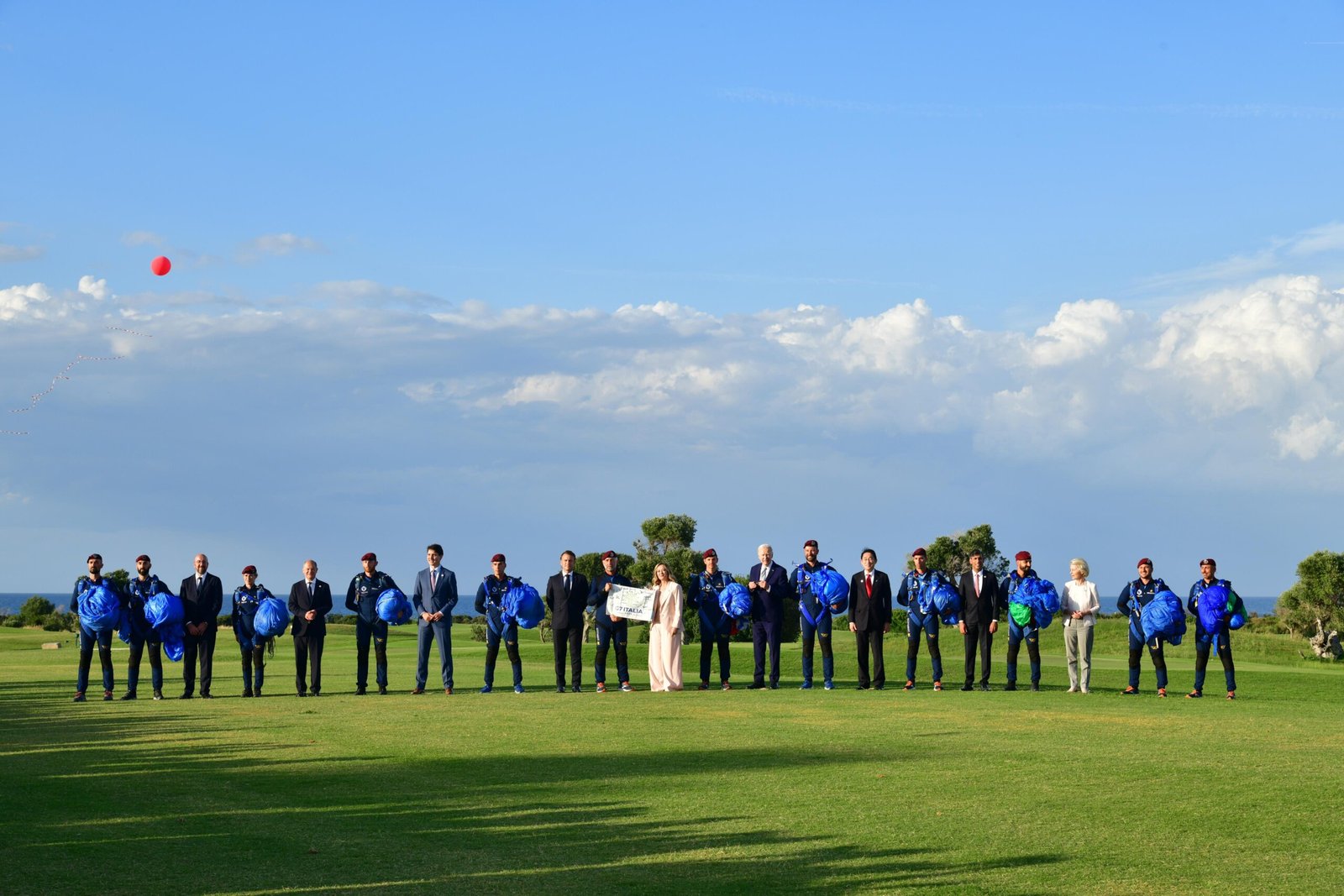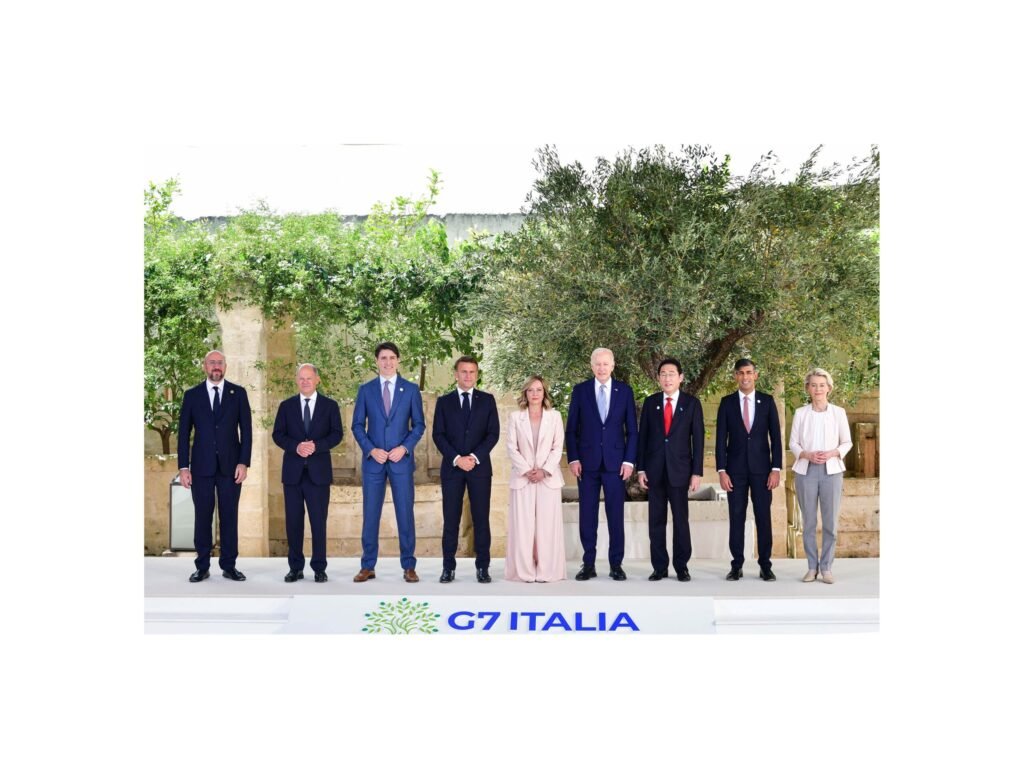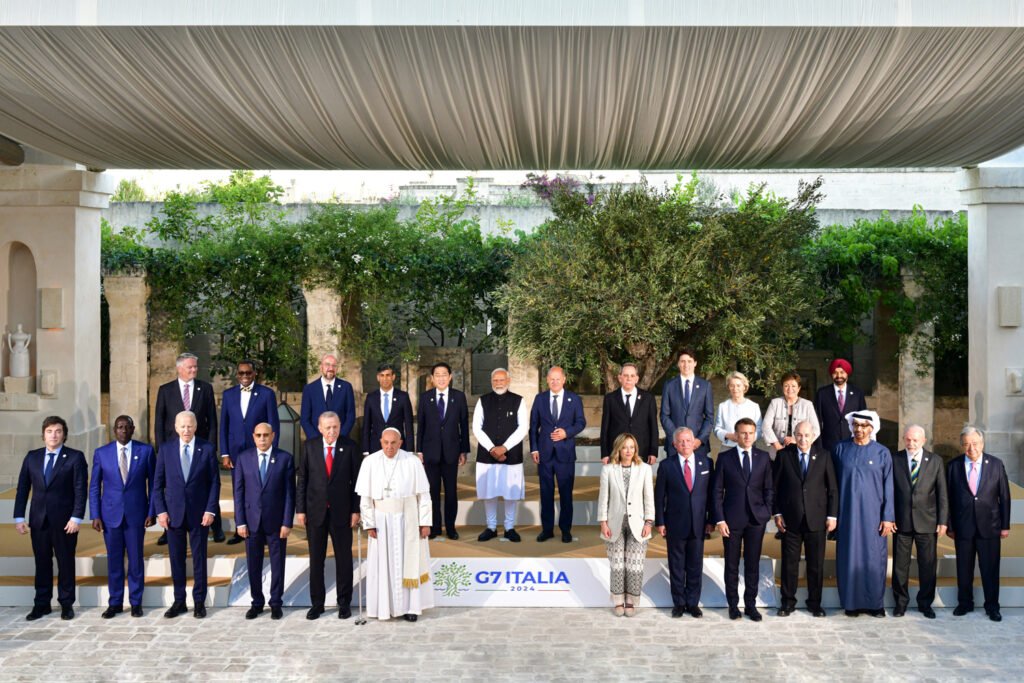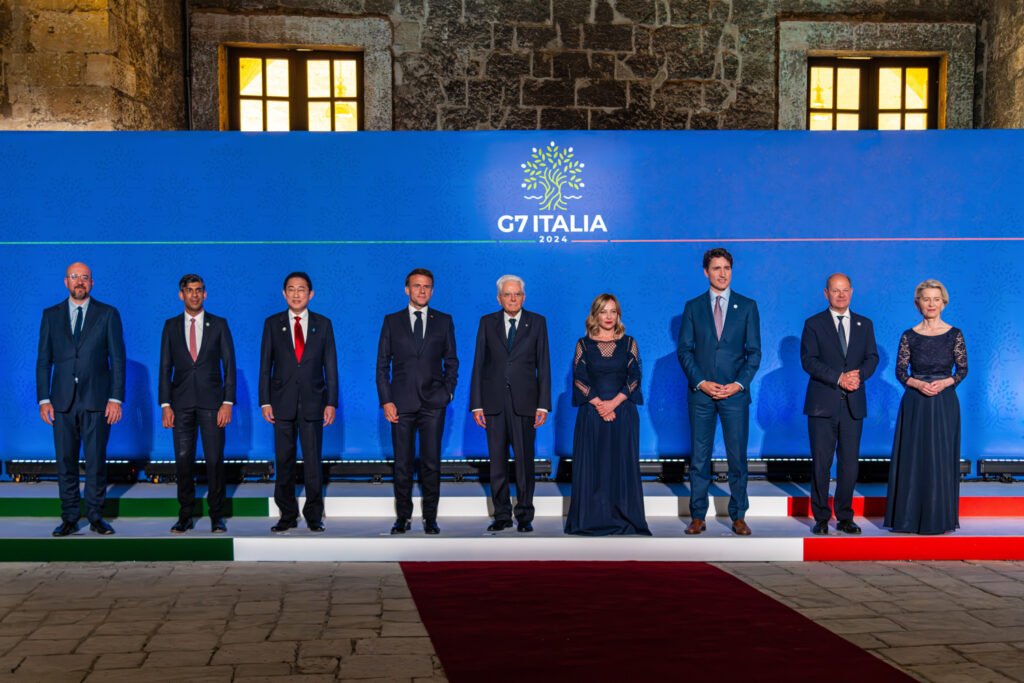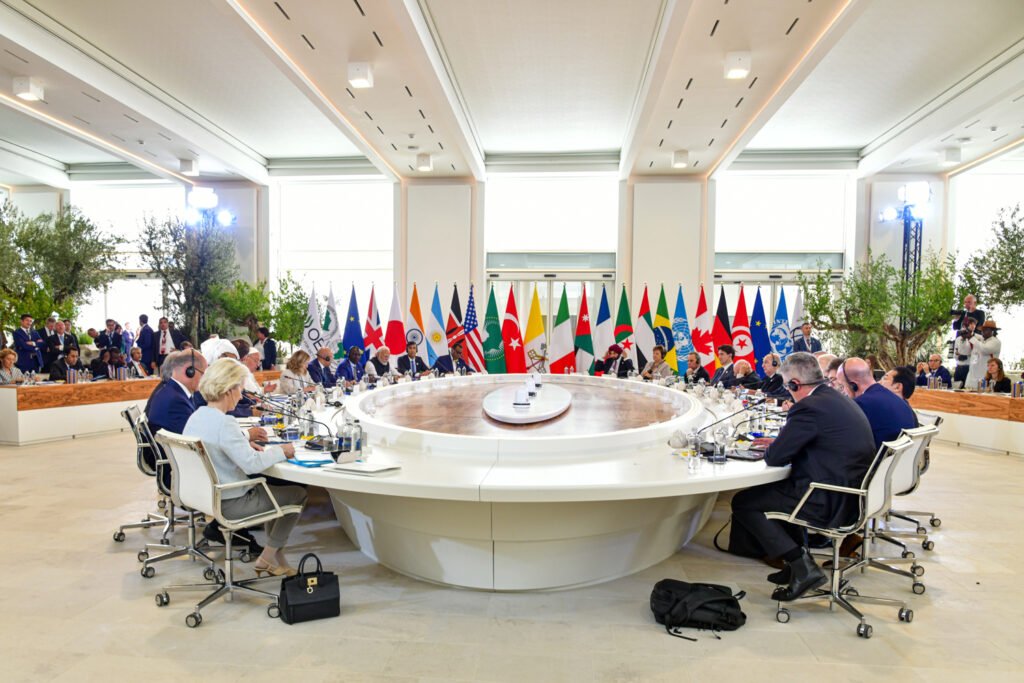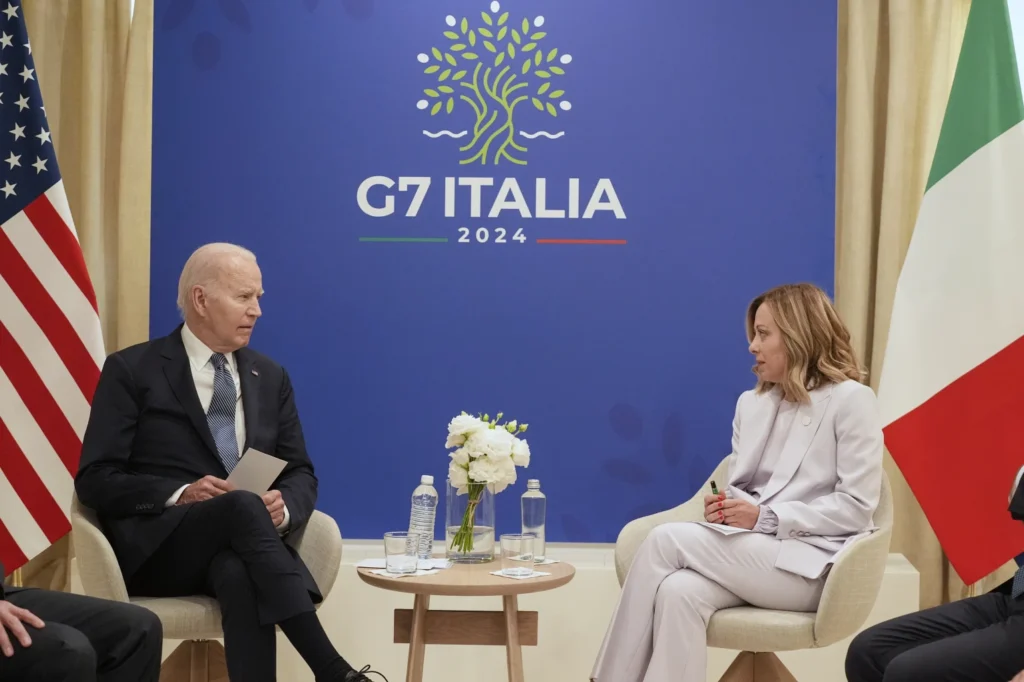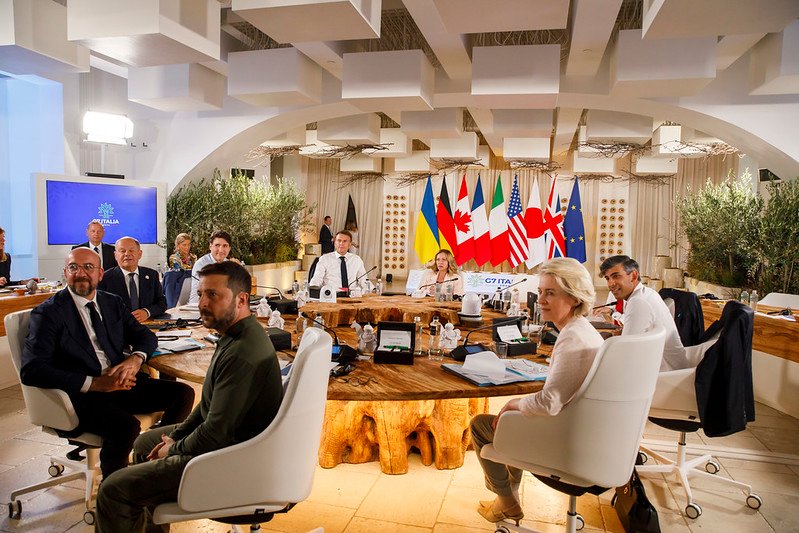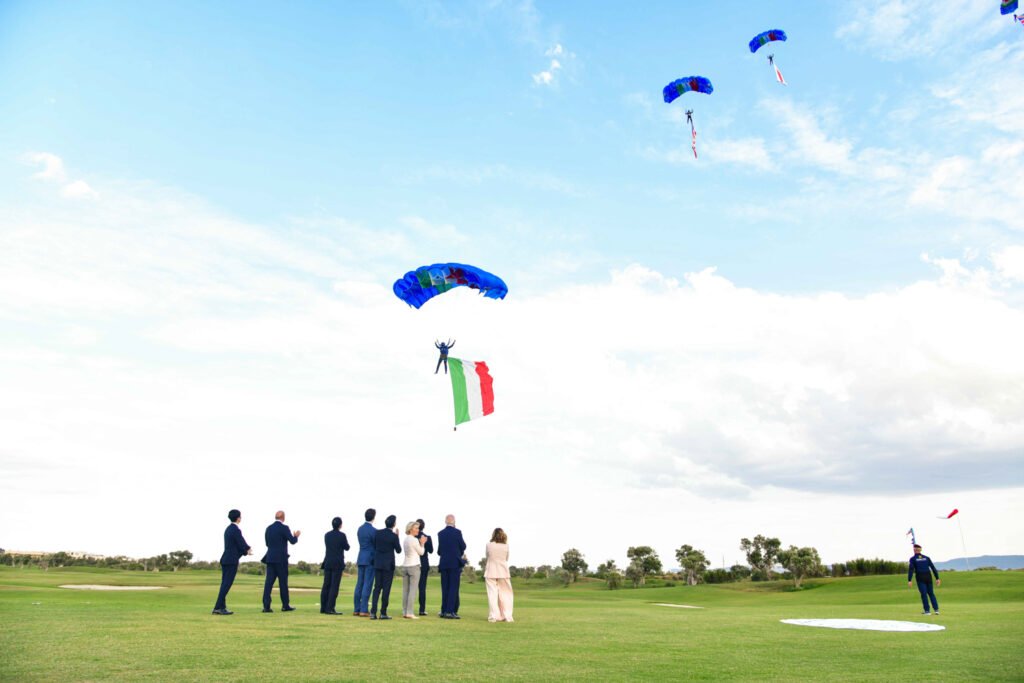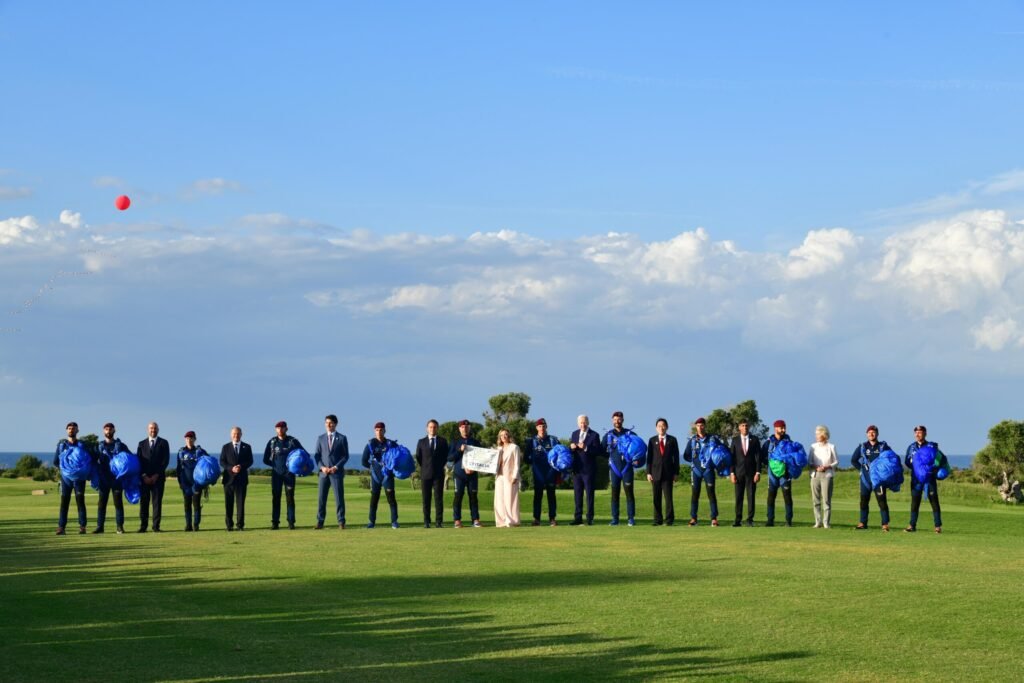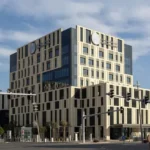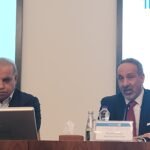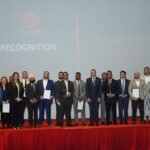Borgo Egnazia, Apulia, Italy, 14 June 2024
(European Union Council)
The G7 50th summit hosted by this year's Italian G7 presidency took place in Borgo Egnazia, Apulia, Italy from 13-15 June 2024.
The EU was represented by the President of the European Council, Charles Michel, and the President of the European Commission, Ursula von der Leyen.
The summit in Apulia was an opportunity for G7 leaders to demonstrate their strong determination to uphold the international order based on the rule of law, and to strengthen their engagement with developing nations.
The main issues addressed during the six working sessions were:
- Africa, climate change and development
- the ongoing situation in the Middle East
- Russia’s war of aggression against Ukraine
- migration
- Indo-Pacific and economic security
- artificial intelligence, energy, Africa-Mediterranean
At the end of the summit, the leaders adopted a leaders' communiqué.
- that it presents, in partnership with countries of origin and transit. We will focus on the root causes of irregular migration, efforts to enhance border management and curb transnational organized crime, and safe and regular pathways for migration. We launched the G7 Coalition to prevent and counter the smuggling of migrants.
- Deepening our cooperation to harness the benefits and manage the risks of Artificial Intelligence (AI). We will launch an action plan on the use of AI in the world of work and develop a brand to support the implementation of the International Code of Conduct for Organizations Developing Advanced AI Systems.
- Fostering strong and inclusive global economic growth, maintaining financial stability and investing in our economies to promote jobs and accelerate digital and clean energy transitions. We also remain committed to strengthening the rules-based multilateral trading system and to implementing a more stable and fairer international tax system fit for the 21st century.
- Acting together to promote economic resilience, confront non-market policies and practices that undermine the level playing field and our economic security, and strengthen our coordination to address global overcapacity challenges.
In taking forward all these priorities, our partnership in the G7 will continue to be guided by our joint commitment to cooperate openly and transparently in a coordinated manner.
We are grateful for the presence of His Holiness Pope Francis and for his contribution.
In a spirit of shared responsibility, we warmly welcome the participation of the Leaders of Algeria, Argentina, Brazil, India, Jordan, Kenya, Mauritania, Tunisia, Türkiye, and the United Arab Emirates.
G-7 Group History
France, West Germany, Italy, Japan, United Kingdom, and the United States formed the Group of Six in 1975 (Canada joined the following year) to provide a venue for the non-communist powers to address pressing economic concerns, which at the time included inflation and a recession sparked by the OPEC oil embargo. Cold War politics invariably entered the group's agenda.
The Group of Seven (G7), an informal bloc of industrialized democracies meets annually to discuss issues of common interest like global economic governance, international security, and energy policy.
Proponents say the forum's small and relatively homogenous membership promotes collective decision-making, but critics note that it often lacks follow-through and that its membership excludes important emerging powers.
Russia belonged to the forum from 1998 through 2014—then the Group of Eight (G8)—but the other members suspended their cooperation with Moscow after its annexation of Crimea in March of that year.
Russia held the G8 presidency two times, for the first time in 2006 and once again in 2014, though effectively only for a few weeks, as Moscow's annexation of Crimea in March drew swift censure from its peers. "We will suspend our participation in the G8 until Russia changes course and the environment comes back to where the G8 is able to have a meaningful discussion," the G7 leaders said in a joint statement.
The European Union has participated fully in the G7 since 1981 as a "nonenumerated" member. It is represented by the presidents of the European Council, which represents the EU memberstates' leaders, and the European Commission, the EU's executive body. There are no formal criteria for membership, but participants are all highly developed democracies. The aggregate GDP of G7 member statea makes up nearly 50 percent of the global economy.
G7 leaders invoked the forum in April to coordinate sanctions against Russia, although members diverged on how far to go and which entities to target. The EU, which has deep economic ties to Russia, imposed penalties on a number of state officials and Ukrainian separatist leaders, but did not join the United States in sanctioning several prominent Russian businessmen, including Igor Sechin, chairman of the state-owned oil firm Rosneft.
Unlike the United Nations or NATO, the G7 is not a formal institution with a charter and a secretariat. Instead, the presidency, which rotates annually among member states, is responsible for setting the agenda and arranging logistics. Ministers and envoys, known as sherpas, hammer out policy initiatives at meetings that precede the annual summit of national leaders.
G-20 and G-7
Many analysts believe the power and prestige of the Group of Twenty (G20), a forum of finance ministers and central bank governors from the world's largest economies, has surpassed that of the G7. Emerging powers such as China, Brazil, India, Mexico, and South Africa, whose absence from the G8 was oft noted, all belong to the G20. (Russia remains a member of the G20, which, Patrick says, "is much more where they belong.")

